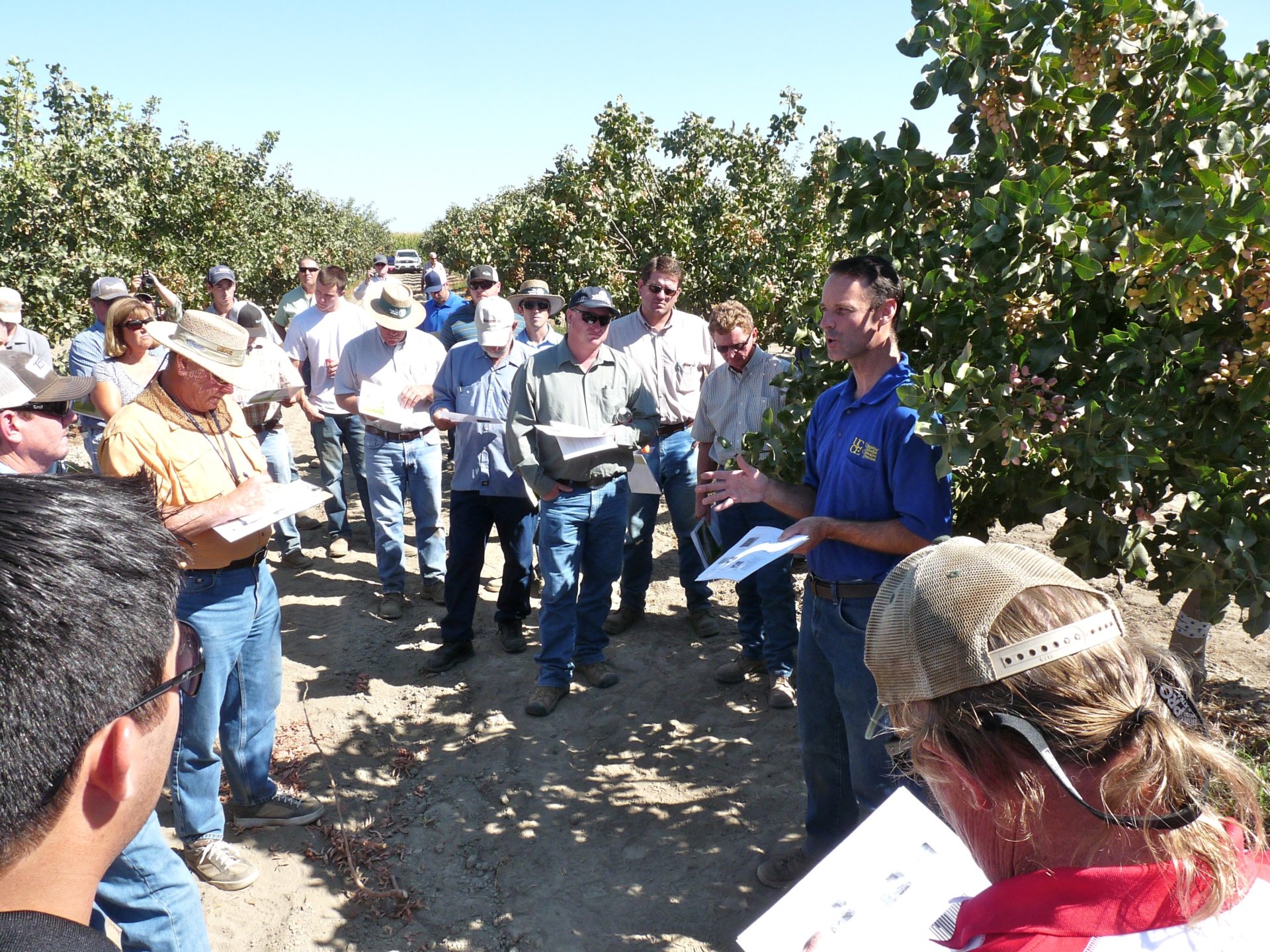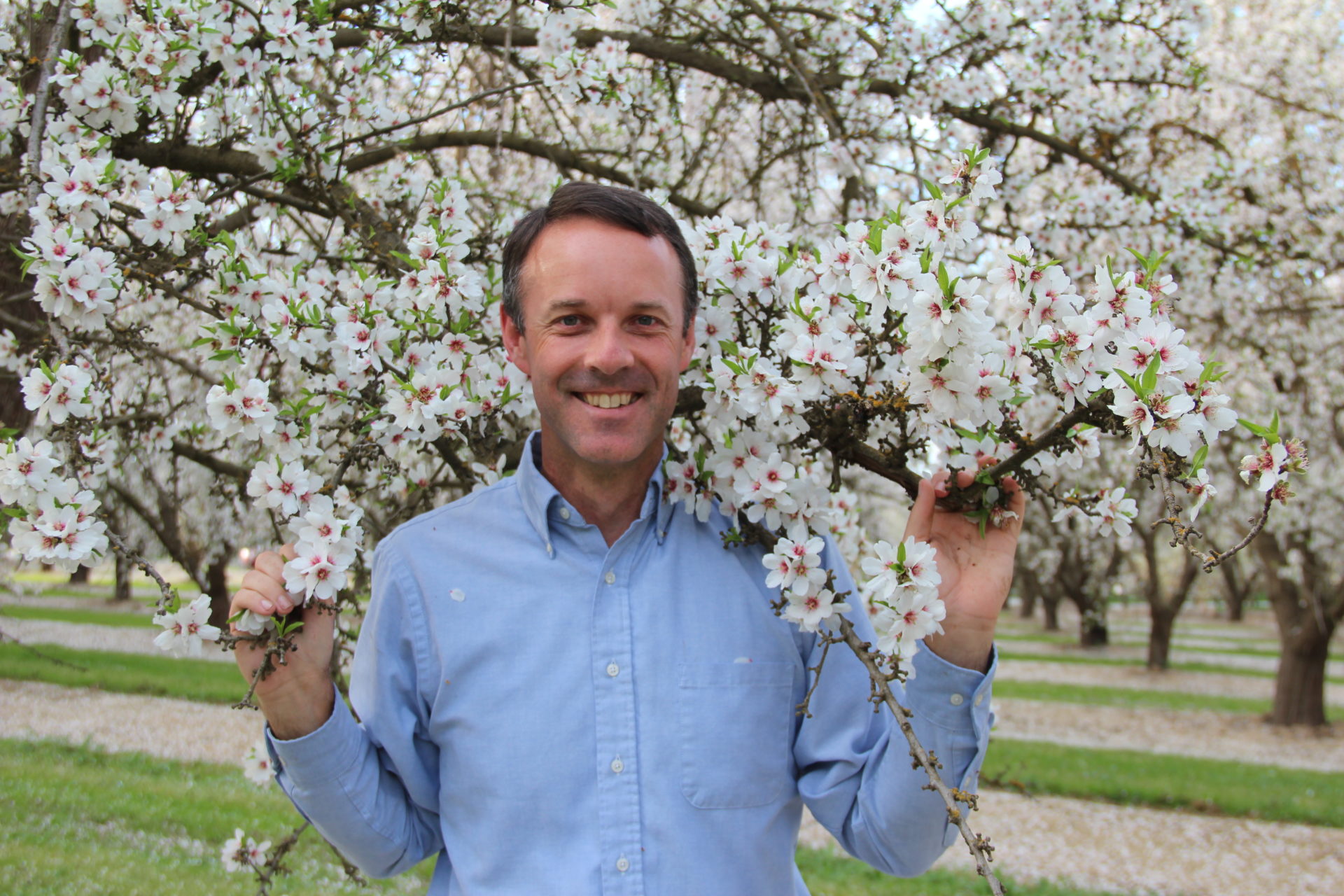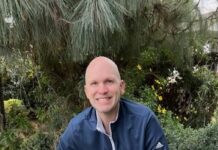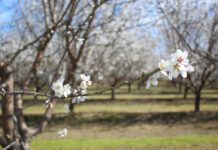Sometimes, a boyhood fascination with bugs starts by being surrounded by flowers.
With a father who managed a large rose production nursery, David Haviland, UCCE Entomology Advisor for Kern County, often found himself working in the nursery and the packinghouse, and thus became quite familiar with the production of ornamentals.
Growing up in a small town just north of Salinas, Calif., also meant that most of Haviland’s closest friends were from families also heavily involved in agriculture, particularly vegetable production. Agriculture just simply became a part of him.
As kids often are, Haviland was captivated by insects from a very young age. And while strong intrigue can be enough to pursue a particular field, it was much more than his appreciation for insects that led Haviland into entomology.
“Insects have always fascinated me, I’ve always loved agriculture, I enjoy interacting with people, and academics have always come relatively easily to me. There aren’t a whole lot of jobs available that match every one of those,” Haviland said.
Haviland may have gotten his early start in agriculture at the rose nursery, but he took his interests and background to Brigham Young University (BYU), where he studied zoology with an emphasis on invertebrates. While a student there, he took two years off and served as a missionary in Argentina, where he became fluent in Spanish. After earning his degree, Haviland returned home to Monterey County and began working for the UC Cooperative Extension office there.
His two-and-a-half years as a technician with UCCE in Monterey County presented incredibly valuable experience working in entomology, viticulture, weed science, plant pathology, and with the county’s other farm advisors by helping them with their research projects. After gaining a solid understanding of how UCCE works, Haviland decided to pursue graduate school at UC Davis. In graduate school, he worked on integrated pest management strategies in field crops, and was hired as a UCCE entomology farm advisor in Kern County shortly before his thesis was signed.
“And I’ve been here ever since,” Haviland said.

Over his 20-plus years with the Cooperative Extension, Haviland has certainly seen some changes in the agricultural landscape. As an entomologist, the biggest shifts have occurred in pesticide availability and use patterns. Historically, Haviland was born the year dichlorodiphenyltrichloroethane (DDT) was banned. At the start of his career, organophosphates were very common and served as the basis for core insecticide programs. Now, the transition is toward reduced-risk pesticides, including techniques such as mating disruption and other, greener methods.
“This shift affects not only how products work, as in whether or not you can kill something, but any time you apply something to a field, it impacts something else, such as beneficial insects,” Haviland said.
Because of this, one of the biggest changes Haviland notes is moving from more broad-spectrum, pesticide-heavy programs that negatively impact biocontrol to much more sustainable programs with very targeted, reduced-risk pesticides that work in conjunction with biological control.
“It’s very much an integrated pest management, sustainability type of shift. It’s been very neat to see and be involved in,” Haviland said.
Though trends may be changing in pest management, Haviland adheres to the philosophy that his job is to explain all the available options to growers so that they can make the most educated decision based on their own factors.
“It’s not my job to tell growers what to do. Even with research projects, the purpose isn’t to tell someone what to do, but to give them the information they need to make an informed decision,” Haviland said.
The correct, or best, decision for a grower is dependent on a unique set of circumstances. Some growers are more risk averse; some like to take risks. Some growers are more environmentally conscious, while others may have economics as a higher priority.
“[Farm advisors] have to help growers understand through science all the different pros and cons of all the different approaches,” Haviland explained. “It’s ultimately up to the farm managers and owners to decide how they’re going to run their farm, which is essentially their business.”
In many cases, varying perspectives can make these topics tougher to navigate. A grower may see things differently than a pest control advisor, who might see things differently than a field worker, who can also differ compared to a processor, salesperson, or even a consumer. Trying to find what is best for everyone requires a collaborative team effort and an understanding of how people think differently.
Haviland has seen this often firsthand. “As a farm advisor, sometimes you find yourself trying to understand where everyone is coming from as much as you’re a scientist working in hard numbers.”
Perception is a powerful thing, and Haviland sees it stretch beyond the personnel of agriculture and into how the public is influenced in its view of farms, which isn’t always favorable. As someone who is based in science and numbers, Haviland is disappointed by many of the things he sees posted on social media— things that help drive public perception— that are completely false or only partially correct, and are driven by those with a particular agenda.
“It’s very frustrating when you want to recommend something that’s totally environmentally conscious and appropriate for a farmer to use, but then, in some cases, having markets and consumers reject that over perceptions that are not based in truth,” Haviland said. “That’s one I wish I could fix, but don’t have the answer for.”
Despite the industry’s hiccups, Haviland’s greatest experiences have been when the industry and university system work together to solve a problem.
“For example, when a new, exotic pest shows up in California, it’s not my job, or the grower’s job, or the pest control advisor’s job to solve it,” Haviland said. “It’s our job to work together to come up with a response.”
Being based in Kern County, Haviland has experienced nothing but phenomenal support from growers, commodity organizations, and pest control advisors as they all work together to solve these problems.
As the industry continues to evolve, Haviland is excited to be along for the ride. It has been quite a journey from his childhood days in the rose nursery, and he wouldn’t have it any other way. “I couldn’t have asked for a better match— a match for what I love and what I’m good at. I’ve been very blessed.”
















